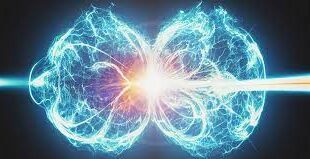US-headquartered GE’s Marine Solutions reports that the world’s first Liquid Propane Gas (LPG)-fueled ferry design to use GE’s COmbined Gas turbine Electric and Steam (COGES) system has successfully completed its Hazard Identification (HAZID) meetings.
The consortium of Youngsung Global. DINTEC. Korea LPG Industry Association. GE’s Marine Solutions and Far East Ship Design &. Engineering Co. (FESDEC) signed a multilateral memorandum of understanding in November 2016 to cooperate on this unique ferry design.
Traditionally. a new ship design undergoes a series of processes from research and development to ship architecture and design. HAZID and AIP certification. and finally onto contracts with the shipyard and suppliers. Therefore. meeting HAZID requirements is considered a key milestone in ensuring the final success of the LPG COGES ferry design process.
This LPG-fueled ferry project provides an opportunity to showcase how Korean technologies advance the global marine industry. In addition. the project allows local Korean companies to participate in the full scope from designing the ferry to building major operational equipment. such as LPG tanks and fuel supply systems.
Increased use of LPG worldwide has made this exciting ferry project feasible. The vessel is designed to ensure both economic benefits and environmental performances. adopting LPG as the main fuel for lower fuel costs and no emission of sulfur oxides (SOx). GE’s compact and lightweight COGES system will provide for all ship power. including propulsion.
An added benefit: the COGES system consumes almost no lube oil and meets current and future regulations for SOx. nitrogen oxides (NO¬x). carbon dioxide (CO2) and particulate matter. Specifically. GE marine gas turbines meet International Maritime Organization Tier III and United States Environmental Protection Agency Tier 4 standards now without exhaust after treatment and no methane slip.
GE marine gas turbines are fuel flexible and can operate on a variety of fuels. including LPG. marine gas oil. biodiesel. bio-synthetic paraffinic kerosene blends and natural gas. The compact COGES arrangement — which GE says is lighter and smaller than comparable diesel engines — allows for more revenue generating space on board ships and lower lifecycle costs. Maintenance of the COGES system requires only about 300 man-hours per year. and the entire turbine can be removed and replaced within 24 hours. reducing downtime for minimal interruption to ship operations.

 Iran Energy News Oil, Gas, Petrochemical and Energy Field Specialized Channel
Iran Energy News Oil, Gas, Petrochemical and Energy Field Specialized Channel



